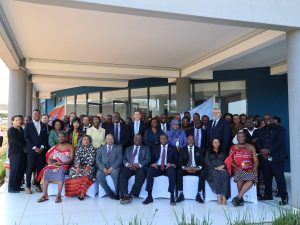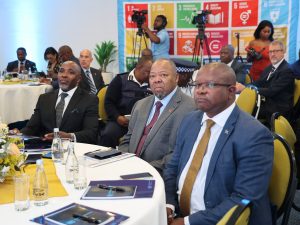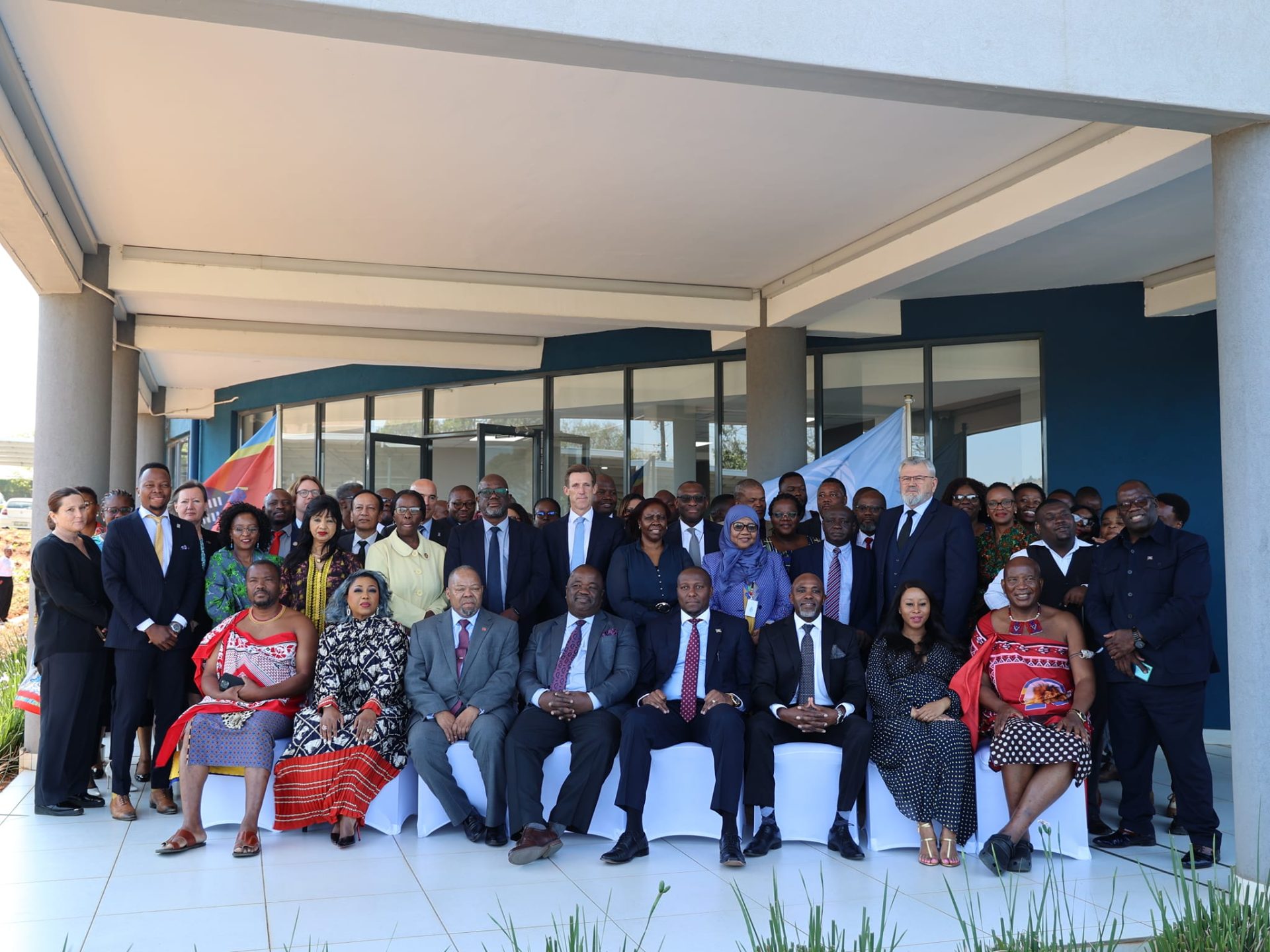By Ncaba Ntshakala
The Kingdom of Eswatini is embarking on an ambitious journey to exponentially grow its economy, with the government unveiling a comprehensive plan to achieve an annual GDP growth of 12% by the year 2028.
This vast target comes at a critical time, as the nation grapples with an unemployment rate of 35.4% and the challenges of uplifting the 58.9% of its population currently living in poverty.
Prime Minister Russell Dlamini announced this ambitious goal during the United Nations Country Team (UNCT) Retreat held at the United Nations (UN) House, where he expressed the government’s commitment to not only improving the state and well-being of the people but also delivering on sustainable development.
The Prime Minister emphasized that this plan, which is under the “Nkwe” Programme of Action, is a direct response to the clear mandate given to the government by His Majesty King Mswati III and the people during the Sibaya forum.
RELATED: Minister Neal lauds African GDP growth despite challenges at AU Finance Session
“It is a profound honour to address you today at this significant occasion, wherein we have gathered with a collective mission: advancing the Sustainable Development Goals (SDGs) within the borders of our beloved country, the Kingdom of Eswatini, and across the globe,” said Dlamini.
He added that the government’s vision is not merely to achieve incremental progress but to drive transformational development that significantly improves the lives and livelihoods of emaSwati.
The “Nkwe” Programme of Action was said not to be just about economic growth, but it is a comprehensive strategy set at addressing the root causes of the country’s most pressing social issues.
These include poverty, unemployment, deteriorating health and education sectors, domestic and gender-based violence, food insecurity, and the impacts of climate change and corruption.
The government plans to tackle these issues head-on, with a focus on sustainable solutions that will benefit all citizens.

The Prime Minister said that a cornerstone of this plan is the pursuit of food sovereignty through sustainable agriculture.
With 303,800 citizens currently facing food insecurity, the government aims to pull them out of vulnerability by promoting the cultivation of local crops, regulating chemical agriculture, and shifting towards organic farming practices.
This approach will not only enhance food security but also contribute to reducing unemployment, poverty, and hunger.
Dlamini asserted that energy security is another key pillar of the “Nkwe” Programme of Action.
“The government is committed to maintaining Eswatini’s status as a green economy by continuing to generate 100% of its electricity from renewable sources,” the Premier said.
However, Dlamini added that the government also recognizes the need for a diverse energy mix to ensure reliability, especially during periods of drought when hydropower may be less effective.
RELATED: Pakistan’s target of 3.5% GDP in 2023-24 fiscal year “realistic” – finance minister
To this end, the government plans to utilize the country’s abundant mineral resources to generate a clean energy base load needed for industrialization.
The Prime Minister also highlighted the importance of modernizing public service delivery, which was identified as a major issue during the Sibaya forum.
The government plans to remodel the Public Service to ensure that it is more effective and efficient, with a strong emphasis on operational excellence and a culture of patriotism and big thinking.
This, Dlamini believes, will enable the government to deliver on sustainable development goals more effectively.
Corruption, which the Prime Minister described as a “pervasive cancer,” is another critical challenge that the government intends to confront.
The “Nkwe” Programme of Action includes plans to significantly strengthen the capacity of institutions like the Anti-Corruption Commission, Human Rights Commission, and the Royal Eswatini Police Services to ensure transparency and accountability in the public sector.

With the country moving forward with its ambitious plan, Dlamini called on development partners to rally behind the government’s short-term and long-term goals.
“Our plan is ambitious and is a disruptive, Government-led transformational strategy that seeks to drive and move Eswatini from a middle-income country to a high-income country, and from a developing country to a developed country,” he said.
The government’s vision was said to be clear; by 2028, Eswatini sets to not only achieve a 12% GDP growth but also ensure that 100% of emaSwati have access to potable water, electricity, quality healthcare, quality education, and equal opportunities.
These are not far-fetched targets, according to Dlamini, but achievable goals that will require collective effort and unwavering commitment.


